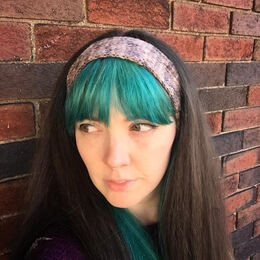Placenta Encapsulation Services
not currently available

KAT KITCHEN
Currently completing her certification to become a Placenta Encapsulation Specialist through APPA (Association of Placenta Preparation Arts), Kat is also a certified DONA Birth Doula. Interested in all things birth related, pursuing her encapsulation certification was just another way to assist families ease into the changes of a growing family. Kat has been part of Birth Doulas of Pittsburgh since 2016 and is a new addition to the team at Bloom Birth Concierge.
Kat currently lives in Hazelwood with her partner Zak and their two children They share their home with two cats and a snake.
Currently completing her certification to become a Placenta Encapsulation Specialist through APPA (Association of Placenta Preparation Arts), Kat is also a certified DONA Birth Doula. Interested in all things birth related, pursuing her encapsulation certification was just another way to assist families ease into the changes of a growing family. Kat has been part of Birth Doulas of Pittsburgh since 2016 and is a new addition to the team at Bloom Birth Concierge.
Kat currently lives in Hazelwood with her partner Zak and their two children They share their home with two cats and a snake.
Various cultures throughout history revered the placenta and have used it in ways ranging from ceremonial to medicinal. For thousands of years, practitioners of Traditional Chinese Medicine have prescribed placenta to support maternal recovery from birth. More recently, placenta consumption has become popular among mothers in the United States. Rather than discarding the placenta as "medical waste", mothers are able to have their own/baby's placenta 'encapsulated'.
Placenta encapsulation is the process of cleaning, dehydrating, and pulverizing the dried placenta into a powder to be placed into pill capsules. The mother can then ingest the capsules during her postpartum period. If there are remaining pills after the postpartum period, they can be stored in a sealed, dark-colored container for later use, such as during the menstruation cycle or for menopause.
The reported health benefits include an increase in the mother's breastmilk supply, balancing of hormones, enhanced energy levels, and better mood. What we know from the scientific evidence is that the placenta is rich in nutrients and hormones. In turn, it is plausible that the placental nutrients may help restore the fatigued body from giving birth, and that the placental hormones may help to balance fluctuating hormones, encourage milk supply, and prevent or decrease the effects of postpartum depression.
Placenta encapsulation is the process of cleaning, dehydrating, and pulverizing the dried placenta into a powder to be placed into pill capsules. The mother can then ingest the capsules during her postpartum period. If there are remaining pills after the postpartum period, they can be stored in a sealed, dark-colored container for later use, such as during the menstruation cycle or for menopause.
The reported health benefits include an increase in the mother's breastmilk supply, balancing of hormones, enhanced energy levels, and better mood. What we know from the scientific evidence is that the placenta is rich in nutrients and hormones. In turn, it is plausible that the placental nutrients may help restore the fatigued body from giving birth, and that the placental hormones may help to balance fluctuating hormones, encourage milk supply, and prevent or decrease the effects of postpartum depression.
